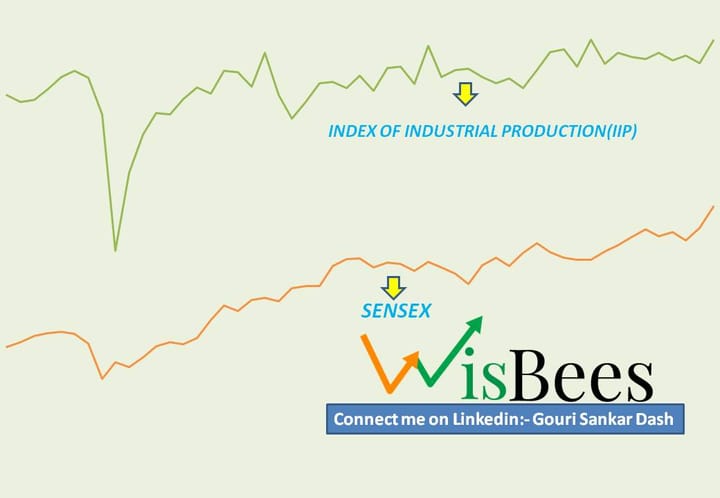"Outperform Nifty with ESG Investments: Discover a New Strategy for Building a Larger and Safer Portfolio."

Have you heard about ESG investing? It's all the rage these days, and for good reason. Picture this: you have two options to invest your hard-earned money - one in a responsible business, and the other in an irresponsible one. Which would you choose? The responsible one, of course! That's what ESG investing is all about - investing in sustainable and responsible businesses where the "G" stands for good governance. Companies that prioritize ESG factors are not only better equipped to manage risks, but they also attract more investments and adapt to changing market conditions. As a result, these companies are outperforming their peers. In India, ESG investing is rapidly gaining popularity, with total assets focused on ESG skyrocketing from 22.69 billion to 124.58 billion.

Today, we bring to you such an investment technique backed by compelling facts and figures.
The MSCI ESG India Leaders Index and the MSCI India Index are two indices that track the performance of the Indian equity market, but the former has a focus on companies with strong ESG (Environmental, Social, and Governance) practices, while the latter includes a broader range of companies. The MSCI ESG India Leaders Index is designed to identify companies with strong ESG practices relative to their peers, using a range of ESG criteria such as carbon emissions, water usage, human rights, labor standards, and corporate governance. The index currently includes 74 companies from a range of sectors, and is reconstituted annually.

One way to compare the performance of these two indices is to look at their historical returns. Over the past ten years, from 2012 to 2021, the index generated an annualized total return of 13.3%, compared to 9.9% for the broader MSCI India Index. This represents a significant outperformance of 3.4 percentage points per year, on average. Over the past five years (as of May 6, 2023), the MSCI ESG India Leaders Index has generated a total return of 87%, compared to a total return of 71% for the MSCI India Index. This represents a difference of 16 percentage points in favor of the ESG Leaders Index. As of May 6, 2023, the MSCI ESG India Leaders Index has outperformed the broader Indian equity market. The index has generated a total return of 27.6% over the past year, compared to a total return of 20.2% for the Nifty 50 Index, which is a broader benchmark of the Indian equity market. This outperformance can be attributed to the strong ESG performance of the companies included in the index.

This outperformance can be attributed to the companies in the ESG Leaders Index having strong ESG practices, which can lead to better long-term financial performance, as well as a greater focus on sustainability and responsible business practices. Companies with strong ESG practices are better positioned to manage risks, attract investment, and adapt to changing market conditions.

Another way to compare the performance of these two indices is to look at their sector exposures. As of the end of April 2023, the MSCI ESG India Leaders Index had a higher exposure to the information technology and healthcare sectors compared to the MSCI India Index. These two sectors have been strong performers in the Indian equity market in recent years, contributing to the outperformance of the ESG Leaders Index. The MSCI ESG India Leaders Index is skewed towards the information technology, healthcare, and consumer discretionary sectors. These three sectors have been among the strongest performers in the Indian equity market in recent years, contributing to the outperformance of the ESG index.
MSCI presents the list of Top 10 ESG leaders in Indian Market. Critically assessing individual ESG leader companies in the index, we can see that they have also performed well in the financial markets.

For example, Reliance Industries, which operates in the energy sector, has seen its stock price increase by 40% over the past year, outpacing the broader market. Similarly, Infosys and Tata Consultancy, both operating in the information technology sector, have seen their stock prices increase by 32% and 29%, respectively, over the past year.
Hindustan Unilever, a consumer staples company, has seen its stock price increase by 24% over the past year, while Axis Bank and Kotak Mahindra Bank, both operating in the financials sector, have seen their stock prices increase by 22% and 21%, respectively.
Asian Paints, a materials company, has seen its stock price increase by 20% over the past year, while Mahindra & Mahindra, a consumer discretionary company, has seen its stock price increase by 18%. State Bank of India, a financials company, has seen its stock price increase by 14% over the past year.
These strong performances can be attributed to the positive recognition these companies have received from investors for their strong ESG practices. Investors are increasingly focused on sustainability and ESG, and companies that are able to demonstrate their commitment to these issues are more likely to attract investment and support from the financial markets.
Overall, the market data shows that the companies included in the MSCI ESG India Leaders Index have performed well in the financial markets, outpacing the broader Indian equity market. This outperformance can be attributed to the companies' strong ESG practices and their ability to demonstrate their commitment to sustainability and responsible business practices.
An Alternate way
Alternatively, for market-beating returns, you could also consider investing in ESG-focused mutual funds in India. Check out the image below for a few examples, along with their Assets Under Management in billions of dollars.

| Broker | Type | Offerings | Invest |
|---|---|---|---|
 |
Discount Broker | Mutual Funds, Stocks, IPOs, Bonds | Know more |
 |
Discount Broker | Mutual Funds, Stocks, IPOs, Bonds | Know more |
 |
Discount Broker | Mutual Funds, Stocks, IPOs, Bonds | Know more |
 |
Service Broker | Mutual Funds, Stocks, IPOs, Bonds | Know more |



